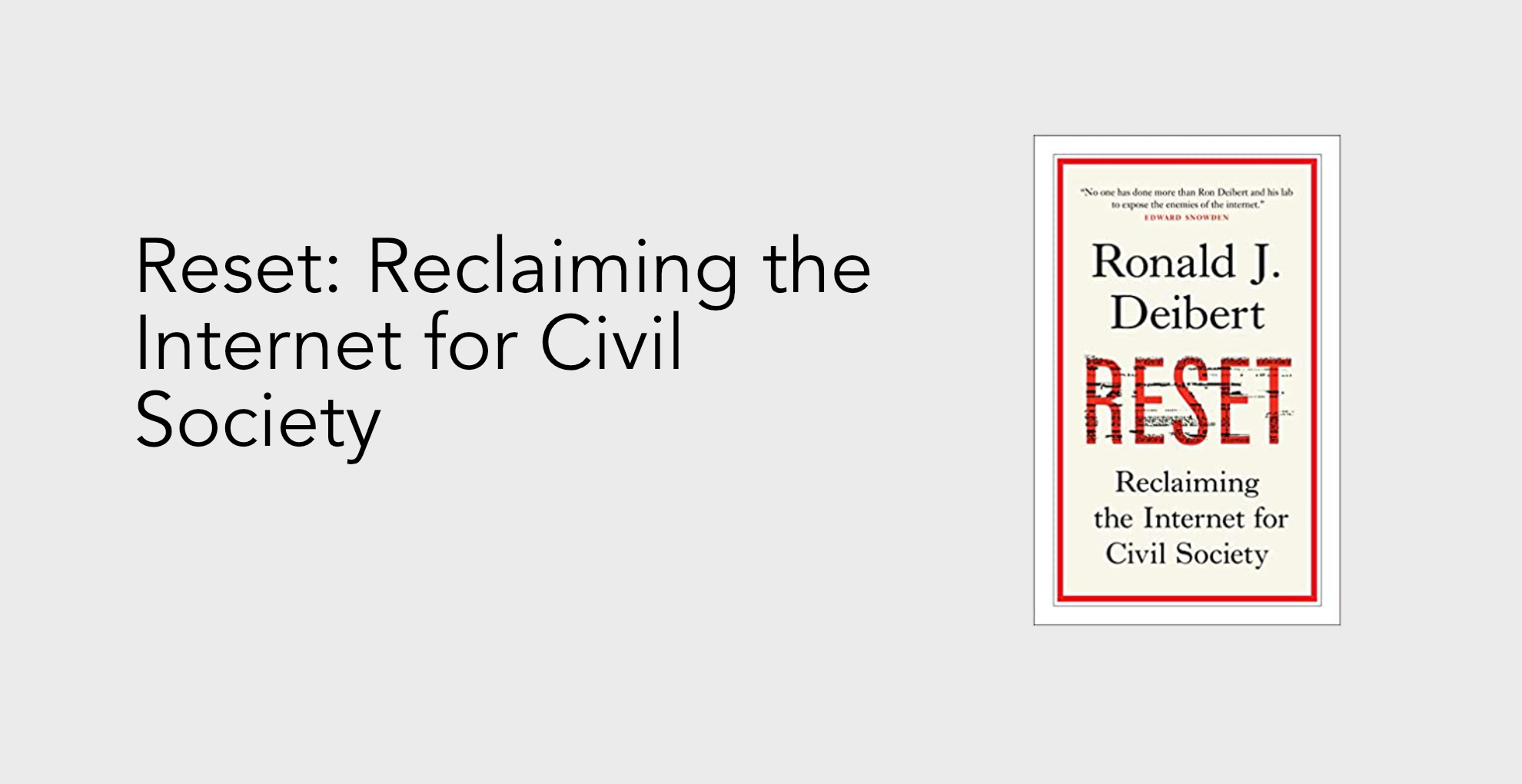While many other books tackle your personal digital life, Reset doesn't take this approach to the subject. Instead Ronald Deibert looks at the overall tech ecosystem to see it's impact on society as a whole.
The purpose of this book is to synthesize what Deibert sees as an emerging consensus about the problems that relate to social media1 and to start further conversation around these painful truths of the impact of our digital lives2.
Let's take a look at some of the problems that Deibert identifies.
Digital Communication is not a Conscious Act
One of the big points that made me stop and think, yet again, was Deibert assertion that we don't use digital communication tools with intentionality3. Instead they're the must have unavoidable background noise that we accept. It made me think of a friend that laments my not responding to his Instagram or Facebook messages. I'm not on Facebook so I have no idea who he is messaging, but I choose not to use the messaging features of Instagram.
The implication of his continual push is that I should accept his preferred messaging platform as one I must use.
There is also the implication that my cell phone must be around and answered for whomever calls me. I balk at this because I can. I know many people that feel they could never let go of their phones and messages for days at a time or they'd miss out on so much of life.
If you're looking to be intentional about what you use, then Digital Minimalism is a good read.
Social Media is About Relentless Collection
At their core, social media are vehicles for the relentless collection and monetization of the personal data of their users. 4
This relentless collection happens without much compensation to the people that are giving up their information. You can see the value differential in the valuation of them companies like Facebook that collect information. They are growing by millions regularly because the information is so valuable while users get more messages and monetization thrown their way.
This also made me think of the arguments in Shorter where Pang showed that increased worker productivity continually accrues towards business owners instead of the workers themselves. The value of our data rises, and the benefit of that rise goes towards social media companies and data analytics companies while we are just the resource to be mined with little cost.
Add to this the fact that few companies take the stewardship of our data very seriously. Every week we hear about new data breaches that bear small consequence to the companies that let our data loose5. They don't bear the years of issues with compromised personal information, they throw a small payment our way if they are forced to by the law and then move on to collect more of our data.
Finally, social media strips away the last bit of privacy we had because we choose to give it up6. It used to be that what happened in our houses was private and unseen by companies and the government. Now we advertise our preferences with photos and smart devices. Social media is our window to the world, and the world's window to see us.
Social Media Harms Society
While deliberate misinformation is an old practice, social media has taken it to a new level of amplification7. We used to have to live beside people we may not agree with, but would come to rely on because they were good at fixing cars or had a great BBQ every summer. Our ideas and disagreements would intermingle and we'd have to reckon the reality of a decent person with ideas we didn't share.
Now you can surf to find all the people that agree with you from the safety of your couch. You can ensure that you don't encounter contrary ideas and fall into confirmation bias easily. Most of us don't have the ability to vet every claim that comes through screens, and yet by the time truth comes out the fakery has often embedded itself in the narrative in a way that we can never get rid of8.
As long as social media prizes attention and users, it will surface polarizing emotional content that wants us to dig in and never let go9. Until that incentive changes, expect polarization and confirmation bias to run social media and fuel tho neo-racism, tribal politics, and unbridled kleptocracy10 that have become a hallmark of the world.
Solutions?
Deibert doesn't offer any notable solutions to these problems. Certainly he doesn't offer personal solutions to them. Yes, you can quit social media, but that's a privilege of those that can afford to disconnect and that don't need the access that social media provides. In some countries Facebook is the internet because it subsidizes mobile plans and then monetizes the data from those users.
This is probably by biggest criticism of the book, it offers little actionable work you can do once you're done reading it to make a change. Even on the personal level, a book like Digital Minimalism offers much more in the way of direction than Reset does.
Should You Read Reset by Ronald J Deibert?
While I found the book interesting, I'm grasping to figure out who should read this book. For most people day to day Digital Minimalism will have a bigger impact on what they do because it offers a plan to drop social media, or at least be intentional about when you use it.
Reset takes a much higher level look at the topics of what social media and digital communication are doing to our lives and communities. There is much to lament in this, but little action offered.
Purchase Reset by Ronald J Deibert: Independent Bookstore | Amazon
